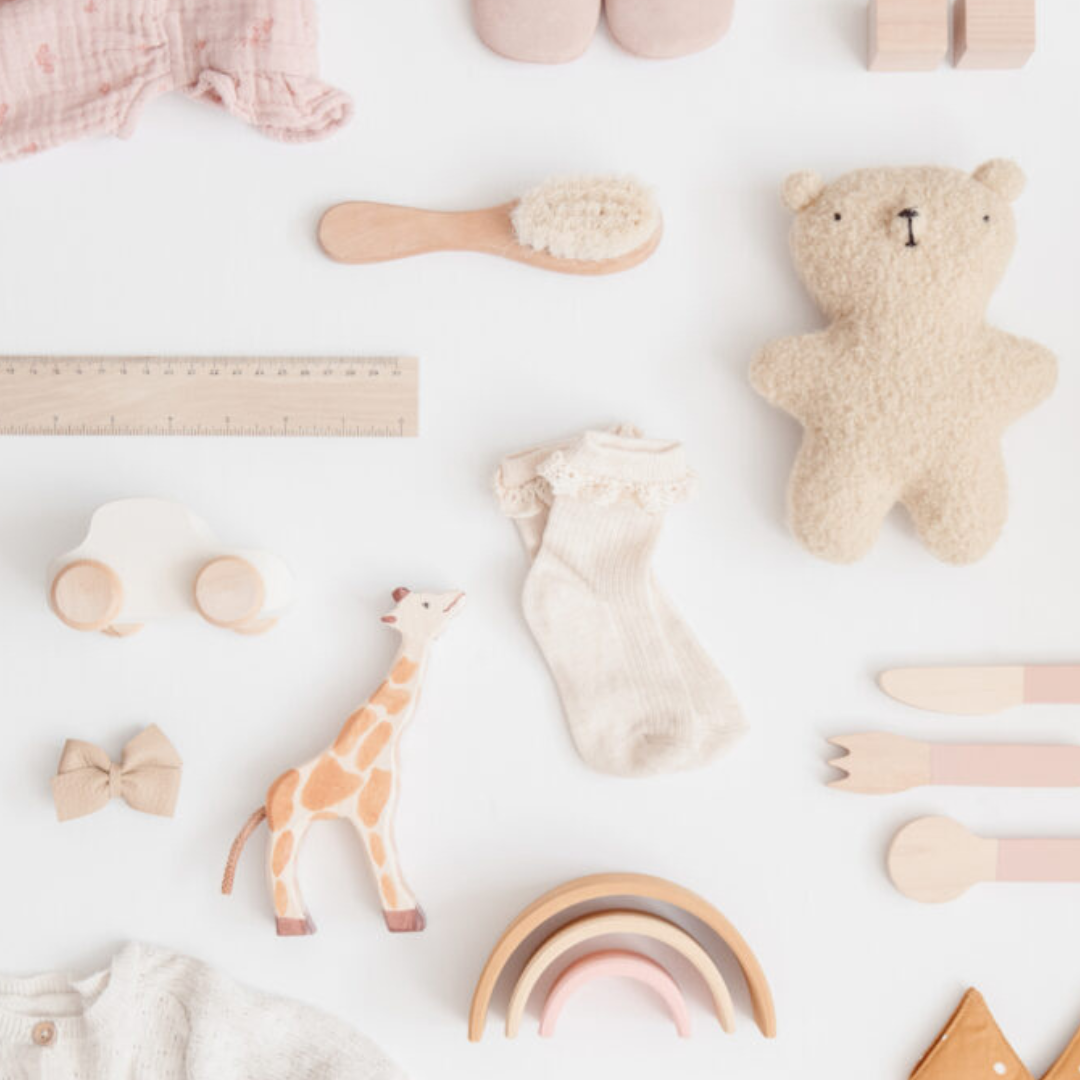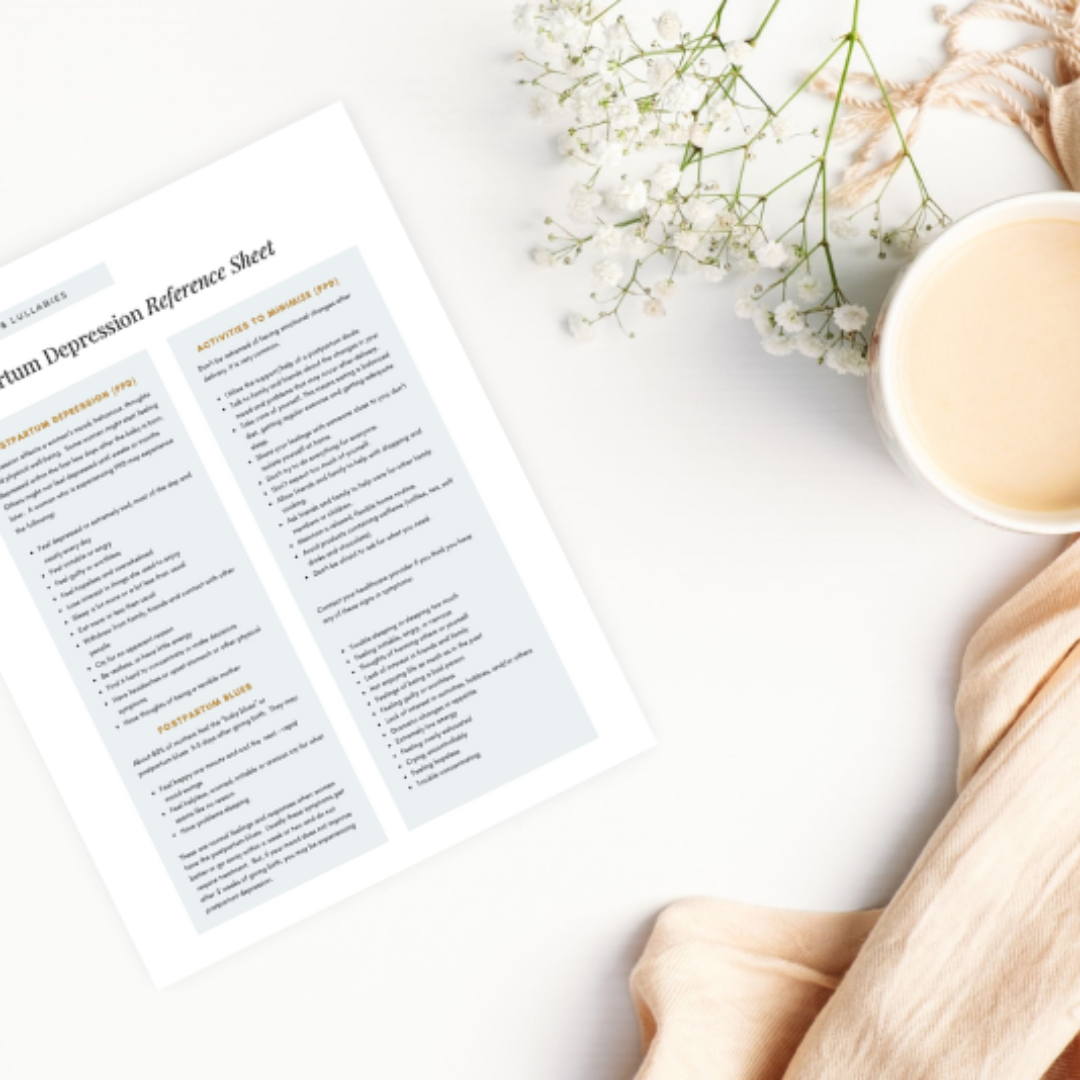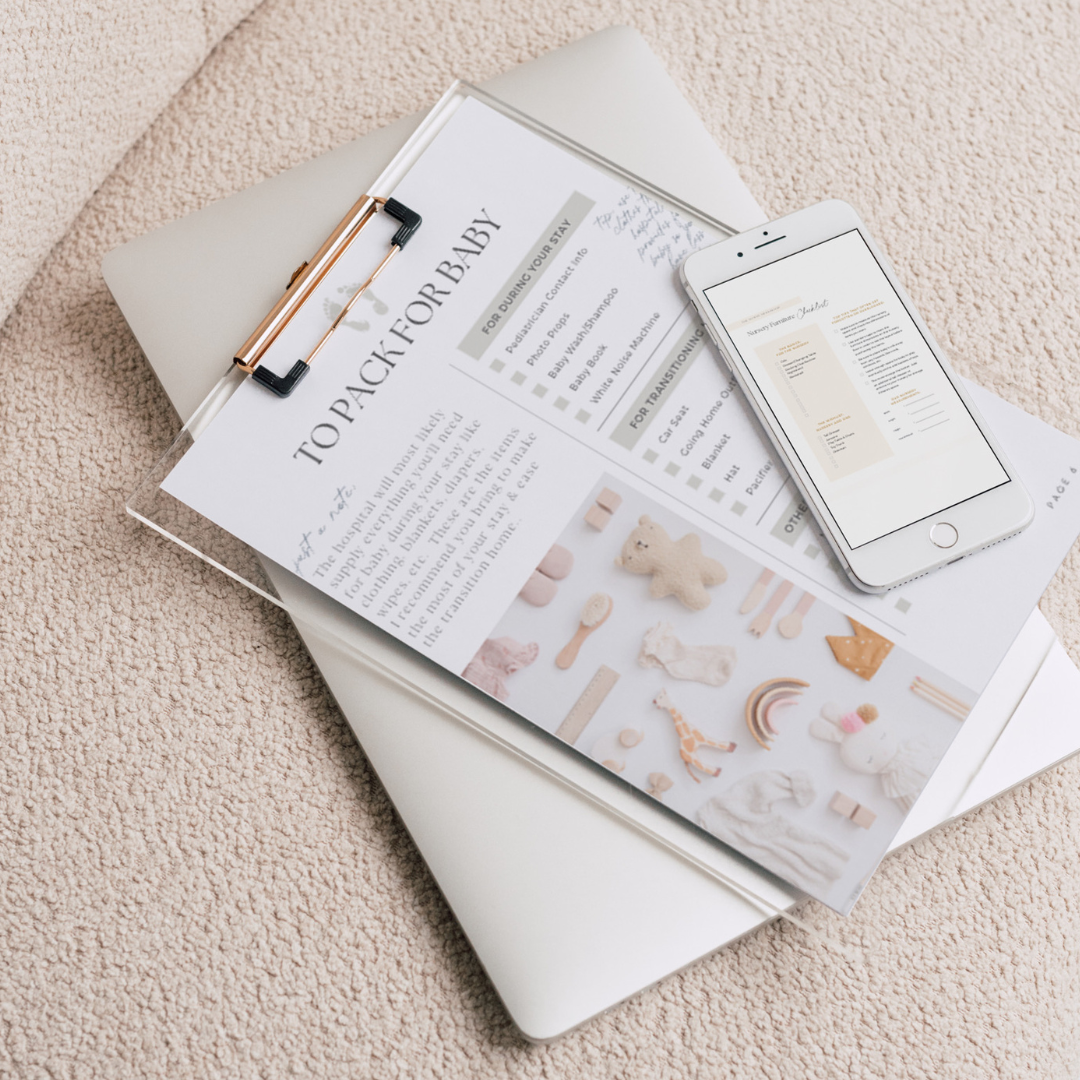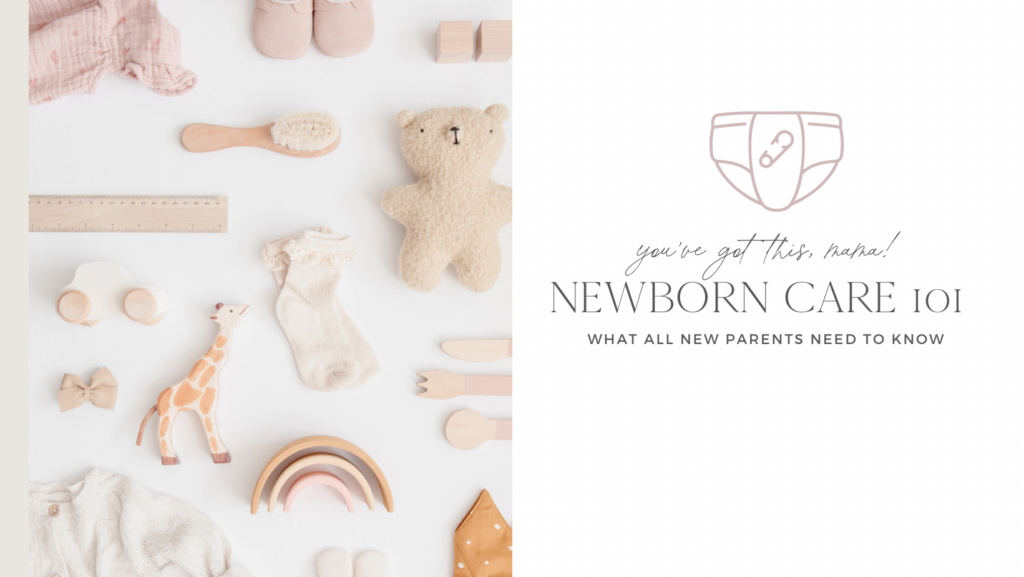
A newborn can certainly be cute and cuddly, but if you’re a new parent and are wondering how to take care of a new baby and have a million questions…you’re not alone! I can’t tell you how many times I’ve seen that scared-to-death-look in new parent’s eyes over my last 12 years of nursing, especially when we send the new family home to “fend for themselves”.
Quite honestly, it’s impossible to learn everything you need to know about your newborn baby while in the hospital. So, today I’ve answered some of the top questions we hear on the Mother-Baby Unit and what I tell every parents that leaves with their sweet bundle of joy.
Consider this my love letter to you, new parents! Pull up a comfy chair, and let’s dive into exactly what you need to know when taking your baby home from the hospital. Welcome, to Newborn Care 101.
{We are a participant in the Amazon Services LLC Associates Program, an affiliate advertising program designed to provide a means for us to earn fees by linking to Amazon.com and affiliated sites. To learn more about affiliate links, click here!}
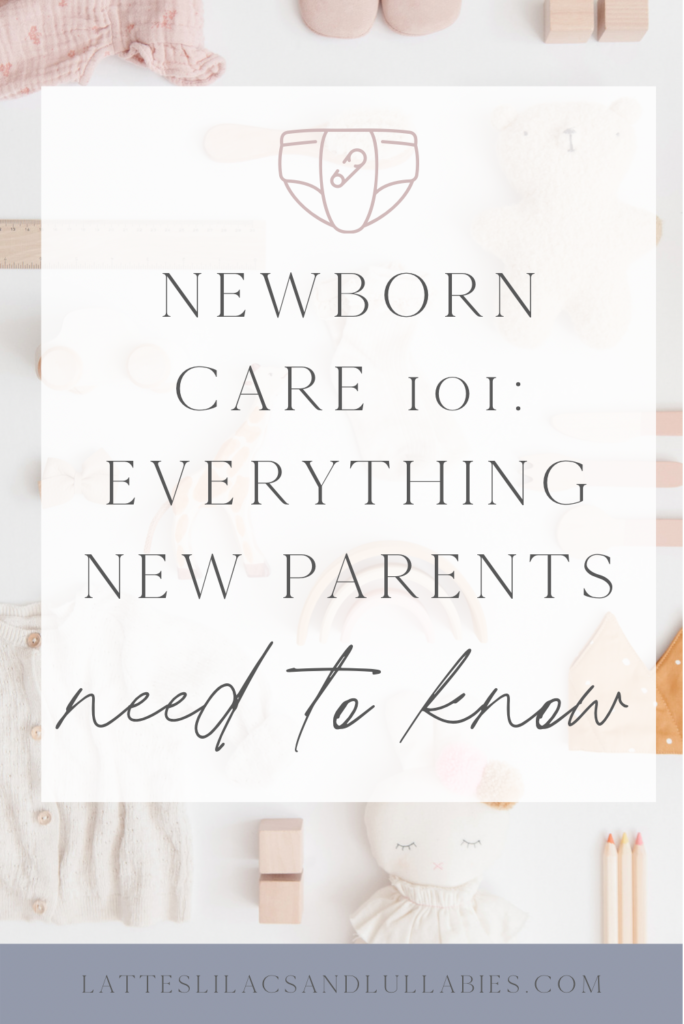
The Basics Of How To Take Care Of A Brand New Baby
So often parents get ready to leave the hospital with their baby and look at me with this “deer-in-the-headlights” kinda gaze and say, “are you really sending us home with this baby? What do we do? “. It can be a scary thing leaving the hospital with your brand new baby. No more call lights, food delivery, nurses and doctors available at your beck and call, etc. Yikes!
Today I’ll share some baby care basics that you need to know when taking your newborn home from the hospital. This list includes some basic ways to care for your baby safely, like how to set up a schedule, and how to make sure you both are healing and adjusting well. Hopefully this list of ideas and tips and tricks will help you relax and enjoy this experience a bit more. You got this!
How To Set Up A Basic Schedule With A Newborn
Many parents tell me that they plan to get their newborn on a schedule ASAP. Well, that doesn’t always work. Sorry to burst your bubble if you also had this plan.
Oftentimes newborns have their days and nights completely mixed up, meaning they sleep all day and are awake at nighttime. In your belly he/she was swayed to sleep during the day when you were up and moving, working, and going about your daily life. Then, at night when you tried to rest and get some sleep, the baby probably woke up because of the stillness.
Did you notice if the baby was more awake in your belly at night? Did you know you can start to notice the baby’s wake and sleep pattern in the womb before he/she is even born?
The basic things to remember when it comes to a newborn schedule, is that the baby needs to eat every 2- 3 hours whether he is breastfeeding or being bottle fed with either pumped breast milk or formula. Babies sleep a lot to help them grow, but it’s often done in small bursts in between feedings. So, plan to sleep when he sleeps. You’ll learn to appreciate a good 2 hours of shut-eye.
Newborn Care 101: Feeding Your New Baby
I’m sure you’ve heard that “fed is best”, and no matter where you fall on the breastfeeding/bottle feeding spectrum, this is simply always true.
Breastfeeding comes with a plethora of benefits to newborns, but aren’t you glad that we live in a time when we have options as well. For some women, breastfeeding just doesn’t work for one reason or another. There could be an entire host of hurdles unforeseen prior to your baby being born that could cause issues with feeding, but thankfully we have alternatives and specialists that can help you.
There are a few things to remember when it comes to feeding your new baby. Take it from someone who’s seen thousands of moms, boobs, nipples, and hungry babies…
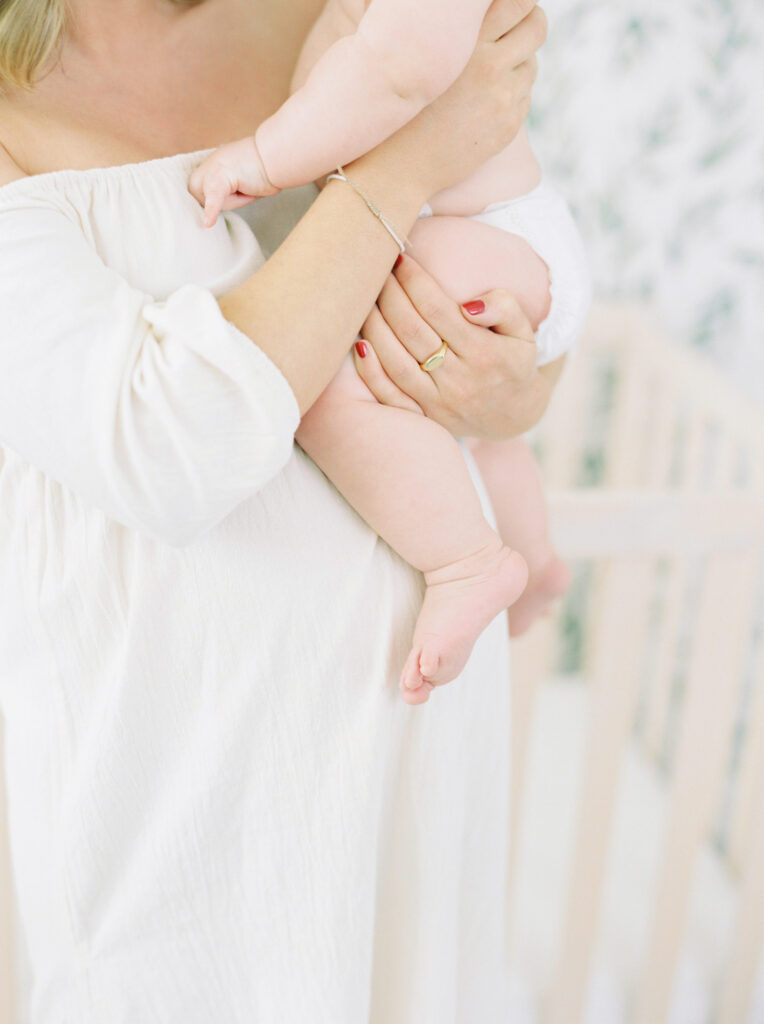
It may take a few days for your breast milk to come in…
Yes, it’s true. Initially you’ll have colostrum, a rich yellow milk that is filled nutrients, fat, and secondary immunity. It differs from woman to woman the amount of colostrum they’ll have. Some can express several ml’s, while others work hard for one drop. Typically the colostrum is enough to nourish your baby until your breast milk comes in.
There are some ways to help your milk come in… stay hydrated, get some rest (as much as possible with a new baby), do some skin to skin contact with baby, and continue practicing putting the baby to breast for feedings. The more stimulation and time you spend practicing with your baby, the more milk you’ll have.
Breastfeeding doesn’t always come naturally…
In fact, sometimes breastfeeding can just downright feel awkward. It takes a lot of practice getting used to holding your baby and latching him properly. I always tell my patients, “breastfeeding is the most natural way to feed your baby, but it doesn’t always come naturally”.
My biggest piece of advice would be to check your local area or even the hospital where you’ll deliver for recommendations for lactation consultants that can visit you in your home and help you get set up for success. We can give you a crash course in the hospital, but the more preparation you do beforehand the better. And, there’s no way to learn everything you need to know in just a few short days postpartum, so continued support is key especially for first-time moms.
Many babies lose weight after birth…
Unless you’re formula feeding, typically your newborn will lose weight after birth. For most pediatricians, they’ll monitor your baby’s weight to make sure he/she regains the weight lost, and won’t be too concerned unless the baby loses more than 10% of his birth weight. Then, by 2 weeks old, you’ll want your baby to be back at or above his/her birth weight.
Baby Formula is wonderful to have on hand…
There are plenty of instances when formula is needed, like if a baby loses too much weight or becomes jaundiced, for instance. Most hospitals these days are what we call Baby Friendly, which means we try to protect breastfeeding and that feeding choice as much as possible. But, there may be times when formula is recommended for the health of your or your baby. Usually babies prefer breast milk over formula because it’s sweeter, so don’t think that your baby will never breastfeed again because he got one or two bottles. Typically, babies go right back to the breast, no problem.
Sometimes donor milk is available for our tiniest of babies, and in the hospital setting donor milk is screened, and screened, and screened some more! If you happen to be an over-producer (congratulations!) or have leftover pumped milk (good for you, mama!) when your baby weans, you can donate your extra milk to a milk bank. Our littlest ones in the NICU will appreciate it.
If you strictly breastfeed, your baby will likely need Vitamin D supplementation…
Breastmilk often is not high enough in vitamin D, so your pediatrician may recommend vitamin D supplementation. You can buy the vitamin D drops at the store and give them to your baby per the instructions on the container. If your pediatrician neglects to mention this, bring it up. Vitamin D is important for healthy bones and joints so your baby can grow big and strong.

Newborn Care 101: Dressing and Diapering Your Newborn
Dressing your baby and changing those first tar-like poopy diapers can be a bit intimidating, but an important part of taking care of a newborn. I am asked how often to change the baby’s diaper. I usually tell new parents to check the baby’s diaper before each feeding and if he/she gets fussy.
How many diapers should we be changing every day?
You want to see around 6-7 wet diapers a day and typically at least one stool. If your baby isn’t feeding well, and isn’t needing diaper changes as often, call your pediatrician. Newborns can get dehydrated quickly, and your pediatrician will be able to walk you through what to do if that should happen. Also, call your pediatrician if you notice your baby is straining to have a bowel movement, seems like he’s in pain, or his belly is getting distended (swollen, larger, and maybe even the skin looks tighter).
How to handle newborn gas?
Newborns aren’t used to having to “go to the bathroom”, so they may experience gastric colic. You may notice this when he goes to eat and immediately starts screaming after a few sucks, or if he’s kicking his legs after feeding like he’s in pain. They’re not used to feeling this digestion and it can be uncomfortable for them. There’s not much you can do for this gastrocolic other than comfort your baby. I’ve found that these gassy babies need a nice tight swaddle (with their legs bent so they look like a little ball) and some snuggling and burping. Talk with your pediatrician also before trying any home remedies like gas drops.
How should I dress my baby?
Baby clothes are some of the cutest things on earth, which explains why you got a million and one outfits at your baby shower, right? When it comes to dressing your baby, I say dress your baby in whatever you are comfortable in, plus one extra light layer.
So, if it’s 90 degrees outside and you are dressed in shorts and a t-shirt, dress your baby in a onesie swaddled in a light muslin blanket. Or, if it’s a frozen tundra outside, dress your baby in a cute footed fleece outfit with long sleeves, wrapped in a stretchable, breathable cotton blanket.
Remember, you don’t want to overheat your baby. This can lead to a suffocation risk and lead to SIDS. If you keep your home around 70-74 degrees, your baby will be just fine dressed similarly to you and your partner. For more tips on how to prevent SID, click here.
Newborn Care 101: Bathing Your Newborn Baby
Babies, thankfully, don’t get that dirty. They aren’t rolling around in the mud quite yet, or getting sopping wet with drool and baby food. So, newborns only really need 2-3 baths per week. Some parents choose to pick 2 nights that are bath nights- like Monday and Thursday- and save that third bath for an epic poop-splosion (my made up word for a poopy hot mess) or other shenanigans.
If your newborn’s umbilical cord stump hasn’t fallen off yet (this usually takes 7-10 days), you won’t want to submerge your baby in water just yet. Do a simple sponge bath in the first few weeks. Get some warm soapy water ready in a bowl or the sink, and start washing your baby starting at the top and working your way down, while he lays on the countertop on something comfortable. (Don’t take your hands or your eyes off your newborn, though.)
Some Newborn Bathing Tips…
- Rest your baby on a comfortable surface for a sponge bath.
- Keep the baby’s diaper on until you reach that “area”.
- Wrap/Swaddle baby’s body in a towel to keep him warm during the hair wash because they can lose a lot of heat from baby’s head. Don’t forget to diaper him too!
- Don’t apply any lotions or oils to baby’s skin unless otherwise instructed to by the pediatrician. Newborn often break out in a newborn rash from detergents, scents, fabrics, etc. You don’t want to make this rash worse.
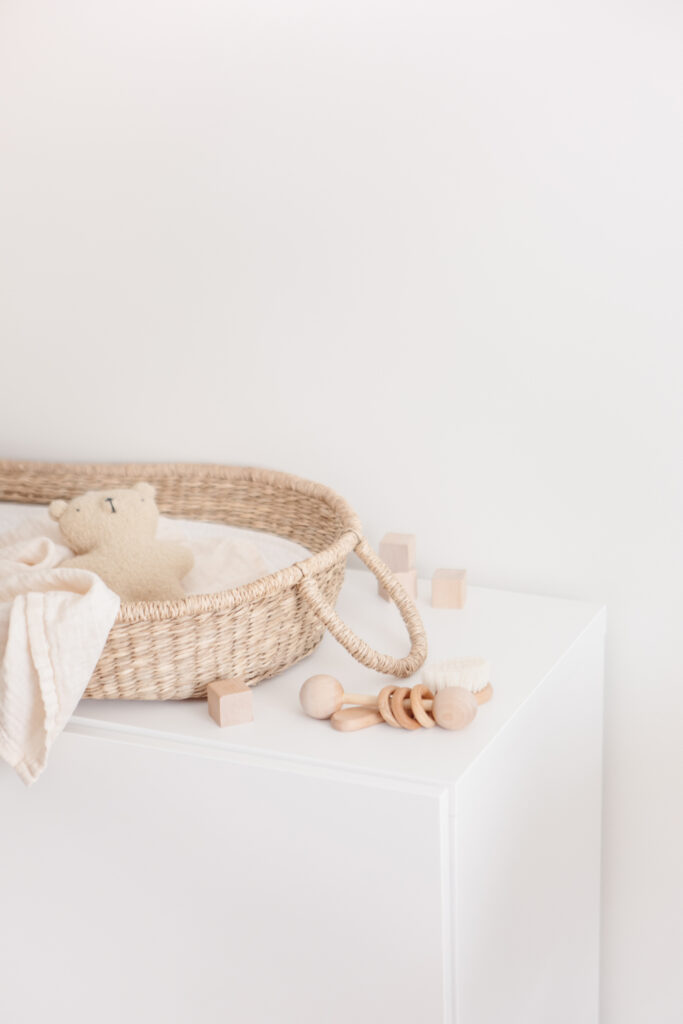
How To Get Sleep With A Newborn Baby
Sleep can be a tricky thing with a new baby in the house. I think the most important thing to do is adjust your expectations. Newborns are typically backwards in their sleep schedules like I mentioned before. They are awake at night, and sleep like little angels during the day. Oftentimes they sleep in short bursts of time (2-3 hours) and then are awake again for another feeding.
Truth be told, especially if you are breastfeeding, you may not sleep for longer than 2-3 hour stretches at a time until your baby gets older…meaning several months older. Yes, you read that right.
That’s why it’s important to sleep when the baby sleeps. Take naps during the day so that you have the energy to feed and cuddle your baby in the wee hours of the night. Take turns with your husband waking up with the baby. If you can give each other a break from time to time and get a few more hours of sleep, then the sleep deprivation of new parenthood will be a bit more survivable.
It’s important to mention that you may get so tired that unsafe sleep practices begin to take place…such as bringing the baby to bed with you, taking naps with the baby on your chest on the couch, or falling asleep while breastfeeding. New parenthood is completely exhausting! Always try to put the baby down in a safe sleep environment with no blankets, stuffed animals, or bumpers around in order to prevent sudden infant death syndrome. It’s simply not worth taking the risk of your baby dying in a sleep-related accident.
Making Family Memories With A Newborn
Shortly after having your baby, you may be ready to hit the town with your bundle of joy and introduce him/her to everyone you know. But, first, here are a few simple things to keep in mind when going out with your baby.
Don’t forget your diaper bag…
It can feel like you’re packing for a week-long trek around The Alps when leaving the house with the baby, but certainly don’t skip this step. You never know what you’ll need, so pack lots of diapers and wipes, bottles, and outfits.
Be extremely careful during the flu and RSV seasons…
If you have your baby in late summer, fall, or winter…basically any time (Ha!)…be extra cautious about germs. Make sure those holding your baby wash their hands first. If someone is noticeably sick, graciously ask them not to hold your baby. Be careful not to take your baby into crowded spaces during these sick seasons also. Exposing your infant to the flu or RSV can be dangerous as they have immature immune systems and can’t be vaccinated for these illnesses yet.
Good news is, if you are breastfeeding, your baby is getting a secondary immunity from your breast milk/colostrum. If you are formula feeding, no worries. Your baby also has leftover immunity from being inside of you. So, whatever illnesses you came into contact with while pregnant, your body formed some immunity to them and passed that on to the baby. But still, be extra careful during these seasons to avoid illnesses and hospital stays…or worse.
Fresh air might be what’s best for your spirit…
In any season, getting outside and into some fresh air might be just what the doctor ordered for your new-parent soul. Go for a walk in the park, or take your baby to the zoo. Baby can rest in his/her car seat/stroller or carrier while you get some exercise.
Celebrating baby’s many firsts…
Holidays and changing seasons are so much fun with a new baby. It’s exciting to think about all the ways you’ll start making your own family traditions with your little one. I’ve got several blog posts that can help you celebrate baby’s first holidays, like Halloween and Christmas. Remember, to take lots of pictures too! These days will fly by and your baby will change before your very eyes!
Postpartum & Newborn Warning Signs:
Believe it or not, you and your baby are still at risk for complications long after you leave the hospital. Here are a few things to watch for so you know when to call the doctor. Also, always listen to that maternal instinct. You’ve known your baby since day 1, literally, so if your bells and whistles are going off that something is wrong with your child, listen to that voice!
What are some things to watch for at home for new moms…
- Thoughts of hurting yourself or your baby- Baby Blues is normal for about 2 weeks or so after the baby is born, but if you find that you’re overly emotional or feeling more depressed than usual, talk to your doctor. If you have any thoughts of hurting yourself or your baby, tell your doctor or a trusted individual immediately. Tell your spouse to watch for these warning signs, as they may be hard to notice in yourself. Postpartum depression is real, and some women suffer also from postpartum psychosis. Although it is rare, it can be extremely dangerous, so seek medical attention immediately.
- Fever/Signs of Infection- it’s possible to get an infection in your incision or tears after birth. Watch for redness, hot to the touch, or oozing around your incision/tears. Also, report if you develop any fevers or are just not feeling well to your doctor/midwife.
- Increase Bleeding- postpartum bleeding is normal, however, if you are filling more than 1 pad in an hour you need to call your doctor. Also call your doctor if you experience new onset heavy bleeding or start passing clots.
- Lightheadedness, Blurred Vision, Elevated Blood Pressure- even when you’re postpartum, you can develop preeclampsia which is elevated blood pressure. This can become extremely dangerous, so if you experience any of these symptoms, call your doctor. If you have a blood pressure cuff at home, you may want to check it to be able to report your findings.
- Redness, Pain in Calf- it’s also possible to develop blood clots after having a baby, especially if you had a c-section. This post-op complication is common, so if you notice that your calf is red, hot to the touch, and painful, call your doctor right away.
What are some things to watch for at home for newborns…
- Jaundice- It’s normal for a baby’s bilirubin to spike at days 2-4 of life. Your pediatrician will follow your newborn’s jaundice level closely, because if it gets too high it can actually cause brain damage. If you notice your baby is getting more and more yellow and is getting sleepier than usual, call your pediatrician. You can help your baby’s bilirubin levels drop by getting in lots of good feedings, hopefully changing lots of wet and poopy diapers, and setting the baby in direct sunlight. For more on jaundice, click here.
- Behavior Changes- If you notice that your baby is extra sleepy or so irate you can’t get him to calm down, call your pediatrician.
- Not Eating Well- If your newborn is not eating well, and is not having wet or stool diapers, call your pediatrician.
- Signs of Sickness- If you notice signs of sickness in your baby, like he’s lethargic, running a fever, &/or seems to be having difficulty breathing, call your pediatrician.
- Abdominal Distention- If baby’s belly get big and hard, and if he’s starting to projectile vomit (like where it goes across the room, not a little spit up here and there), call your baby’s doctor.
It can be one of life’s scariest and one of life’s most rewarding moments taking your newborn home from the hospital. I hope this post answered a lot of your burning questions and concerns. If you have more questions please leave them in the comments below!
More Posts You’ll Love…
- Ultimate Guide to Baby Essentials: What All New Parents Need In The First 3 Months
- Hospital Bag for Dad: What To Pack
- Most Unique Baby Names for Girls 2022
- Best Gender Neutral Baby Names
- Postpartum Care Kit: All The Essentials You’ll Need After Having A Baby
- How To Prepare To Have Your Baby During The Covid-19 Pandemic
- 50+ Tips For New Moms: How To Survive The First Year
- 4 Classes To Take Before Having Your Baby
- 10 Special Ways To Celebrate Your Rainbow Baby
- 10 Things You Need To Know About Your Baby’s Car Seat
Stephanie Wilson



